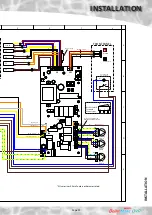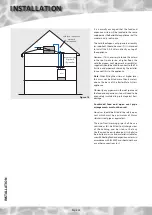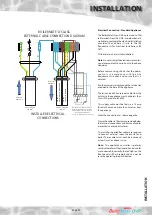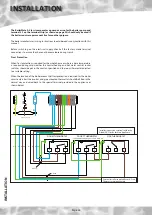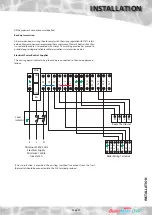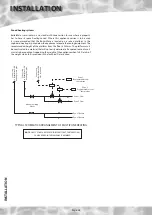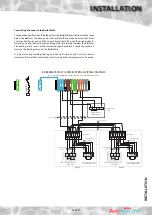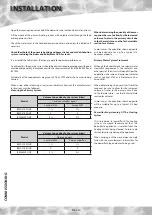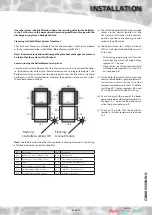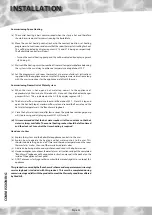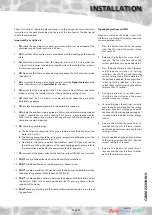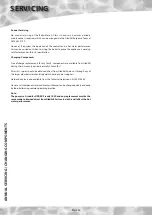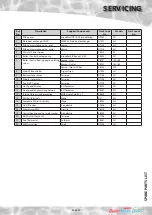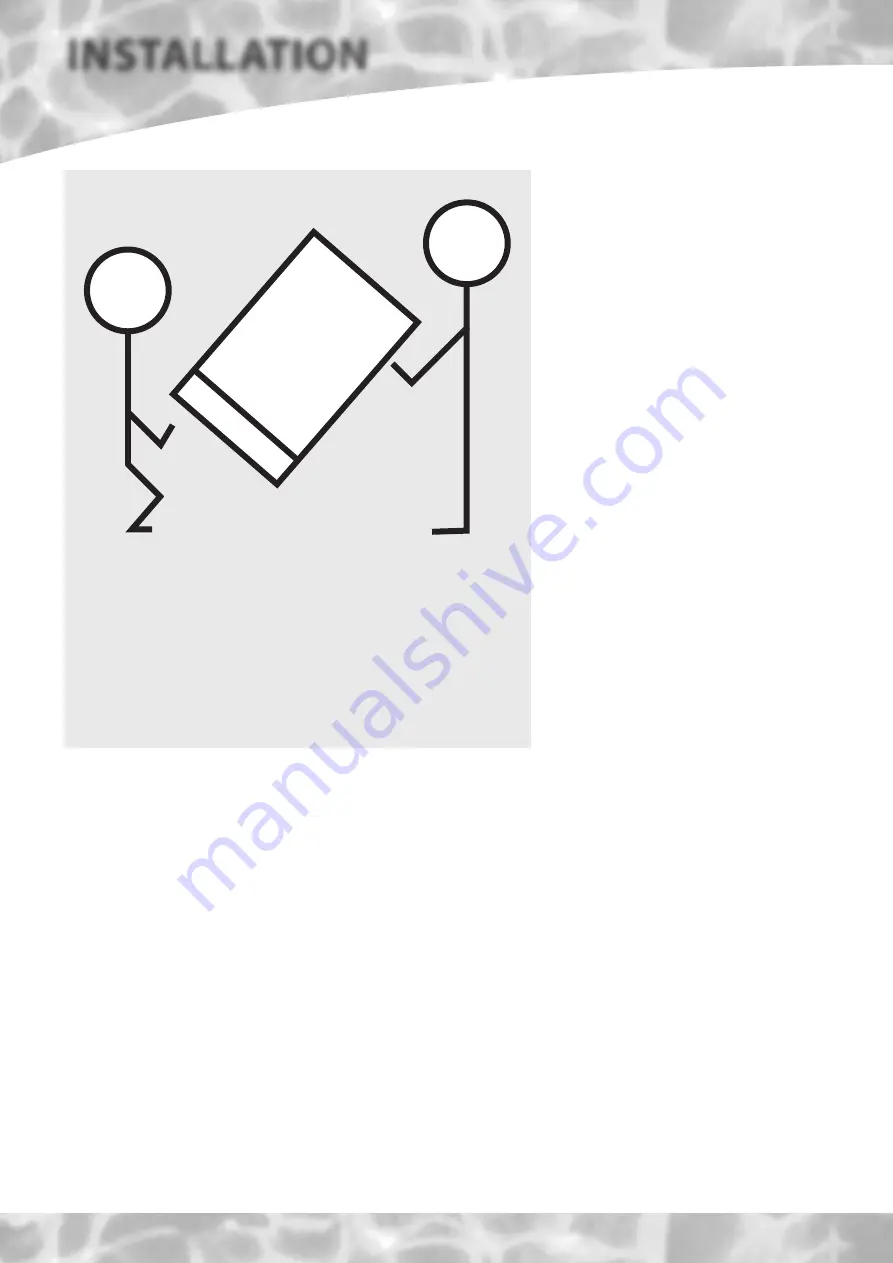
Page 20
INSTALLATION
INST
ALL
ATION
Preparation/placing the appliance in
position.
Details of the recommended positions for
termination of the first fix pipework are
provided in the Technical Data section. The
pipework can be located or its position
checked using the template provided with
each appliance. If these have been followed
installation is very simple and much quicker
than any other system.
The appliance is supplied shrink wrapped on a
timber installation base. Carrying handles are
also provided in the back of the casing.
The feed and expansion cistern complete with
ballvalve, cold feed/expansion and overflow/
warning fittings are provided in a separate
box. If flexible connections have been ordered
these will also be inside the feed and expansion
cistern.
The appliance should be handled carefully
to avoid damage and the recommended
method is shown opposite. Before installation
the site requirements should be checked and
confirmed as acceptable. The plastic cover
and protective wrapping should be removed
from the appliance and the installation base
(provided) and placed in position.
The appliance can then be lifted into position
in the cupboard on top of the base and the
front panel removed by unscrewing the 2
screws and lifting the door up and out, ready
for connection of the pipework and electrical
supplies. The feed and expansion cistern
support shall be installed ensuring that the
base is fully supported and the working
head of the appliance is not exceeded and
the recommended access is provided for
maintenance - see the Technical Data section.
For further information on manual handling
See Appendix.
Note: Although the above guidance is provided
any manual handling/lifting operations will
need to comply with the requirements of the
Manual Handling Operations Regulations
issued by the H.S.E.
The appliance can be moved using a sack truck
on the rear face although care should be taken
and the route should be even.
In apartment buildings containing a number of
storeys we would recommend that the appliances
are moved vertically in a mechanical lift.
If it is proposed to use a crane expert advice
should be obtained regarding the need for
slings, lifting beams etc.
HANDLING
When lifting the unit work with someone of similar build and height if possible.
Choose one person to call the signals.
Lift from the hips at the same time, then raise the unit to the desired level.
Move smoothly in unison.
Larger units may require a team lift.
A specific manual handling assessment is shown in Appendix
at the rear of this manual.
Summary of Contents for BMAS 150 OVR
Page 38: ...Page 38 APPENDIX APPENDIX B ...
Page 40: ...Page 40 APPENDIX D NOTES ...
Page 41: ...Page 41 NOTES ...


















